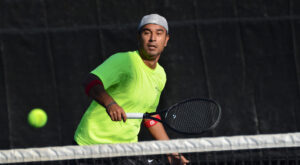
USTA Atlanta’s Amanda Hunt Receives USTA Janet Louer Organizer of the Year Award
Congratulations to Amanda Hunt, the Director of Junior Programs for USTA Atlanta. She is the recipient of the Janet Louer Junior Team Tennis Organizer of

Congratulations to Amanda Hunt, the Director of Junior Programs for USTA Atlanta. She is the recipient of the Janet Louer Junior Team Tennis Organizer of

Whether we’re aware of it or not, we’re constantly surrounded by word-of-mouth marketing messages. Here are some examples of this type of messaging that you

USTA Georgia & the Georgia Tennis Foundation are excited to announce that Georgia Governor Brian Kemp has formally declared May as National Tennis Month throughout

How do you expand tennis in your state? A strategic focus of USTA is increasing the number of providers like parks and recreation departments, coaches,
Whether you’re looking to start a new sport, join your friends on the court, or improve your overall health, USTA Georgia has something for everyone. Tennis is a sport for a lifetime- for all ages and abilities.
About USTA Georgia
USTA Georgia Diversity, Equity & Inclusion Statement
USTA Georgia’s mission to promote and develop the growth of tennis, is only enhanced by leveraging diversity and creating an inclusive environment. We are committed to ensuring that people of all backgrounds have access to and feel authentically welcome in the game and business of tennis.
It is with this spirit of equity and inclusion that we invite all people who play, watch, support and/or enjoy tennis to partake in our many programs, events and membership offerings through participation, volunteerism or leadership.